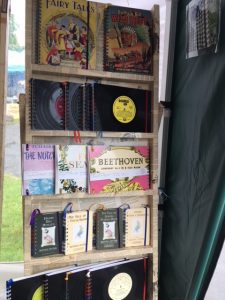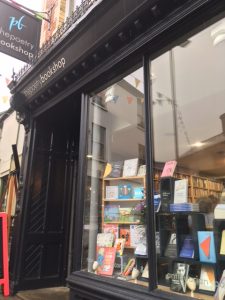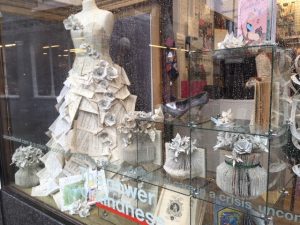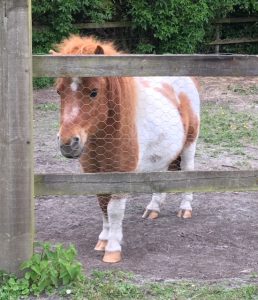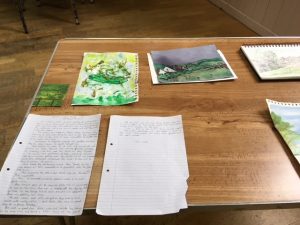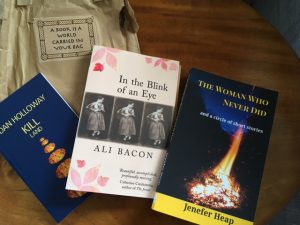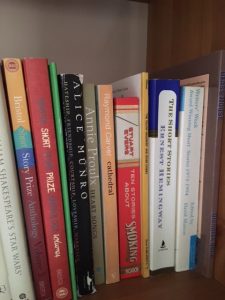This Week’s Bit of String: Fine, and you?
In my second year of high school I started asking friends how they were doing. I hadn’t really bothered with it before. When you’re younger, I suppose it doesn’t occur to you.
Asking the question felt like a revelation. This was so grown-up of me, so kind and engaged. After a dangerously needy adolescence, I told myself that by asking people three little words, I was finally giving back to the world.
I don’t think the world saw it that way.
Third period English class, I asked how my friend was as we took our seats. ‘The same as I was when you asked me last lesson,’ she snapped.
There was the real revelation. Asking a question, even if you’re listening for the answer, doesn’t mean you’re showing helpful or genuine concern. Lately I’ve witnessed (and been on the receiving end of) various interactions which may be well-intentioned at the start but either end up grudgingly made, or accompanied by the giver’s complaints behind the recipient’s back. Do you ever notice that?
We need to examine, both societally and privately when we look at our personal interactions: Are we truly capable of selfless interest in others?
People Aren’t Stories
This may be particularly relevant for writers. We’re nosey people. Introverts, sure; we might not actually want to talk to you, but we’d damn well like to hear about you. We hunger for stories as much as we hunger for compliments.
We are often quite empathetic people. I’ve blogged about empathy a lot. But our preparedness to walk in someone else’s shoes isn’t truly selfless or inspiring when in the back of our minds we might be considering walking them right into Chapter 3.
We’re also good at dramatising things. We invent funny memes about the toil of each WIP’s journey, and feel every rejection deeply. But we must always remember that we wouldn’t choose another way of life. Seeing our stories born, freeing them from our minds, make everything worthwhile and let’s never forget it.
People aren’t Audience Members
The modern age has boxed us into little thumbnail sketches on a screen. And many of us are obsessively competitive over who can be busiest (translation: who is the most indispensable). How many times have you seen someone copy and paste a generic Facebook status trying to gauge whether people are actually reading their posts?
“I SAY I’M FINE BUT I’M NOT!” Do they believe anyone else is doing otherwise? Do they feel any better when a handful of people respond with tearful emojis? We’d all like a quick attention fix. But attention is addictive rather than satisfying, particularly when it’s given in intense, but empty-calorie doses on social media.
For our own sakes, we should remember everyone else is in the same boat. Busy, sometimes just for the sake of being busy; lonely and tired and stressed. We can’t expect other people to meet our needs consistently any more than we’d really want them to expect that of us.
People Aren’t Charity Cases
Growing up in an evangelical family, the missions trip was a rite of passage. Everyone at church did one of some sort. A girl came back from a couple weeks in Moldova and revealed to the congregation her hardship of having to eat the food her hosts made for her—all of it!—so as to seem polite. Her talk about her trip seemed to have more inferences to her figure than information on the people she went to serve.
I’d gone on two trips to Haiti, myself. But I think (I hope) I recognised myself as the main beneficiary of these adventures. I was on a team ‘helping’ to build a school, although we also brought funds to keep Haitians employed building it.
There’s more consciousness, at least in some circles, regarding the efficiency of volunteering trips. We go into them pale and pudgy; porous; desperate to soak meaning into our lives. It’s perfectly possible to do some good while we’re there, and to make friends and carry home a fresh perspective. But we mustn’t pretend we’re martyrs for submitting to a long flight and some concrete brick-hauling.
(If you’re interested in helping people in Haiti, I recommend SOS Children’s Villages.)
People Aren’t Stupid
It doesn’t take long for someone to notice whether another party’s genuinely interested in them or not. After a few teams visited Port-au-Prince, I suspect the Haitian helpers developed a sense for which visitors would go home and boast about coping with cold daily showers in a country that was largely without running water. Likewise, kids grow up and remember which relative met requests to play with an eye roll. Junior co-workers will start to notice if the person volunteering to help them constantly complains about the burden, even if it is behind their back.
The remedy for this bitter insincerity is further self-examination. If we choose to do something, let’s choose it wholeheartedly, and remain mindful of how it affects others. If you’re in a job you don’t like, I feel sorry for your co-workers as much as for you, because I’ll bet they know it. If you give me a hand with something, you’d better want to or it isn’t worth it to me.
While visiting my family a few weeks ago, I had lots of grand plans and various others joined in, especially my youngest sister. She had other projects going on, and I tried to accommodate this by setting later start times on our day trips. But for our second excursion, she asked, ‘Are you sure you don’t want to leave the house until noon? Because you said we could leave a bit later yesterday, and I think you got stressed it wasn’t enough time on the trip.’
I appreciated her calling me out on this. I don’t want to be that person who offers something but then fails to maintain graciousness. I will keep trying to avoid that. It helps when someone else forces me to be honest about my intentions and needs—like my youngest sister, like my friend in high school.
So if I complain about something I’m doing, please remind me it was my choice. Maybe I’ll be brave enough to do the same for you if necessary.

